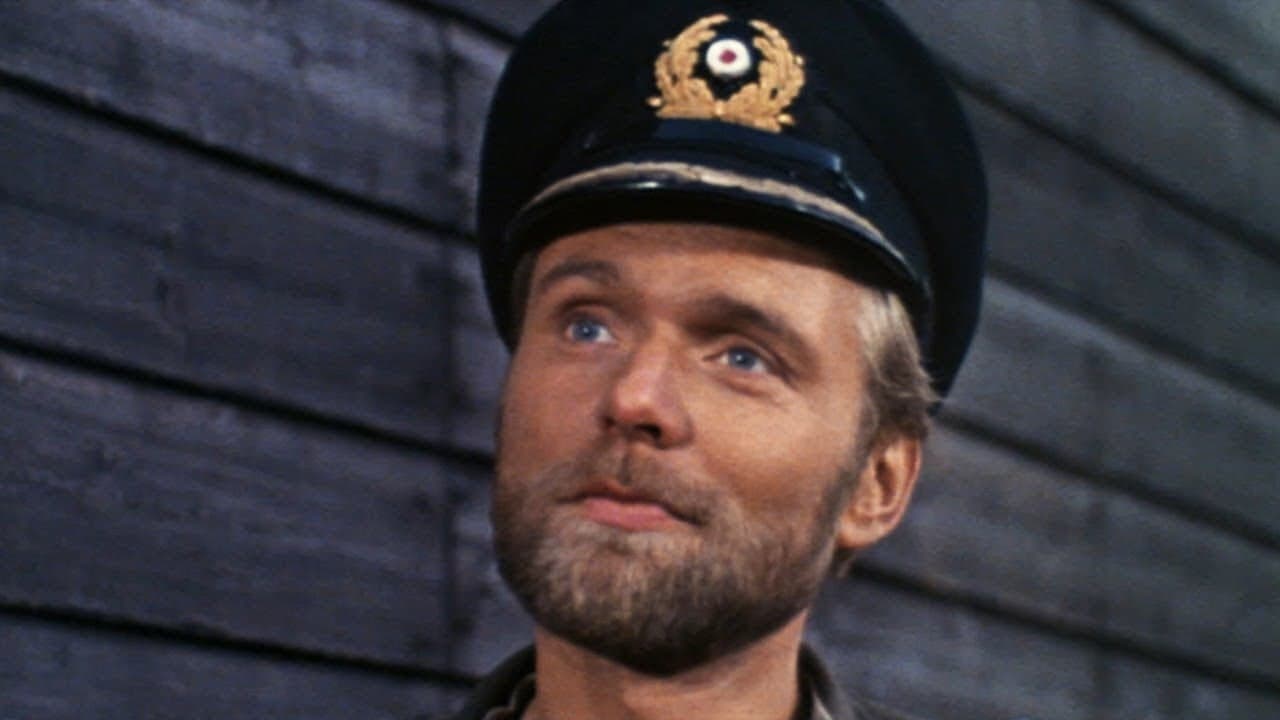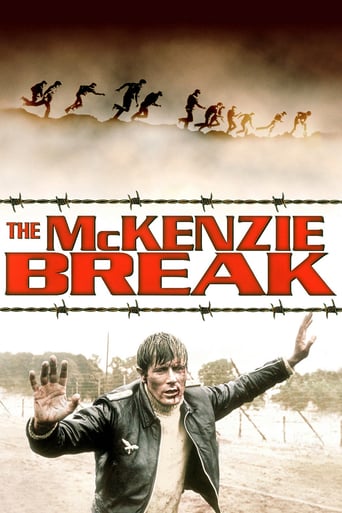

The Mckenzie Break' ('TMB' 1970)--a somewhat overlooked film in the WWII POW genre--is a dynamic & well paced production that has been digitally transferred (DVD; currently lacks Blu-ray/HD, as of 12/13) in remarkably good condition. 'TMB' is recommended for only the die-hard fans of the POW genre & perhaps the curious WWII genre viewer. Another alternative film in the mold of 'TMB', as well as, 'Stalag 17' (1963), 'The Great Escape'(1963), 'Hart's War' (2002), 'Empire of the Sun' (1987), 'The Hill' (1965), 'Blood Oath' (or 'Prisoners of the Sun', 1990), 'The Bridge on the River Kwai' (1957), 'King Rat' (1965), & 'Victory' (1981), is 'The Good War' (2004) with Roy Scheider & Luca Zingaretti, and written & directed by Giorgio Serafini, pales slightly in comparison, but offers another view of an Axis POW camp in the US (Texas). For similar themes also consider: 'The Colditz Story' (1955); 'Escape to Athena' (1979); 'So weit die Fusse tragen' (TV 1959); 'Paradise Road' (1997). Also consider: 'What Did You Do During the War Daddy' (1966); 'Empire of the Sun' (1987); 'Ivan, Marie og verdenshistorien' (1992); 'Victory' (1981); 'Merry Christmas Mr. Lawrence' (1983); 'POW' (TV, 2003); 'As Far As My Feet Will Carry Me' (2003); 'The Secret of Blood Island' (1964); 'The Great Raid' (2005); 'Von Ryan's Express' (1965); & 'Andersonville' (1996).
... View MoreI only comment on one aspect of the film that I found particularly noticeable. It is about the use of foreign languages, in this case German, in American movies.There were several occasions when the German POWs were talking amongst themselves in this film, and - quite rightly - the medium of communication switched then from English to German. The problem with this is that only a few of the actors who play Germans in this film are Germans, and the result is a bit off-putting. I would categorize the German-speaking in this movie into 4 classes:1. Non-native speakers who don't have clue what they are doing: they rush their lines very quickly, but are virtually incomprehensible. It is not even German with a strong accent, it just comes across as gibberish.2. Non-native speakers who do have a clue: they speak more slowly and are understandable, but sadly they all seemed to speak with a fairly strong and easily identifiable accent.3. Germans who speak normally.4. Helmut Griem. One can tell that he is stage-trained, because he tended to speak with this peculiar cut-glass, highly articulated accent stage actors are trained to use so that the people right at the back of the theatre would still understand what they say. It doesn't sound very real though - it doesn't in English and it doesn't in German either. Perhaps Griem instinctively wanted to compensate for groups 1 and 2, and surely the director wasn't in a position to tell that he was overdoing it.What some American movie makers (and this is a prime example, another one would be 'Die Hard') fail to realise is that whenever the original version of such a film is viewed by native speakers then foreign language scenes built on such premises will not work, they just make the knowing viewer cringe. Just think about what it would do to 'The Great Escape' if some of the inmates were played instead by German actors who speak English with a strong German accent.
... View MoreThis is a rare movie about German POWs planning an escape from from their British prison camp. The only movie of a similar plot I'm aware of is "The One That Got Away", another rarely seen film and one I recommend.Brian Keith is a Captain for Army Intelligence sent to a POW Camp in Scotland after a riot occurs to discover what the prisoners are really up to. Naturally, he and the German Kapitän are soon at odds, both providing good performances in their battle of wills.Military historians would be happy to see that this movie incorporates some real events into the story. As in the film, there actually was a break out of 28 Germans from a camp in Canada, and there were some real cases of riots, and Germans murdering Germans as well.There are many very good POW movies and it is too bad that this one pales in significance to them. There is not much that is original or spectacular but Brian Keith and Helmut Griem make it a very watchable movie. I give it a 6 out of 10.Bob
... View MoreAn irish intelligence officer (Keith) has been given the unwanted task of figuring out what is going on in a british P.O.W. camp for german officers. He suspects the captives, under command of a submarine captain (Griem) are planning a major prison break, and during his investigation has several confrontations with his german counterpart. Brian Keith gives us one of his best performances opposite Helmut Griem (also memorable) in this suspenseful and highly original World War II drama. If you enjoy realistic war movies that doesn't deal with "guys on an impossible mission", you should love the underrated McKENZIE BREAK.
... View More